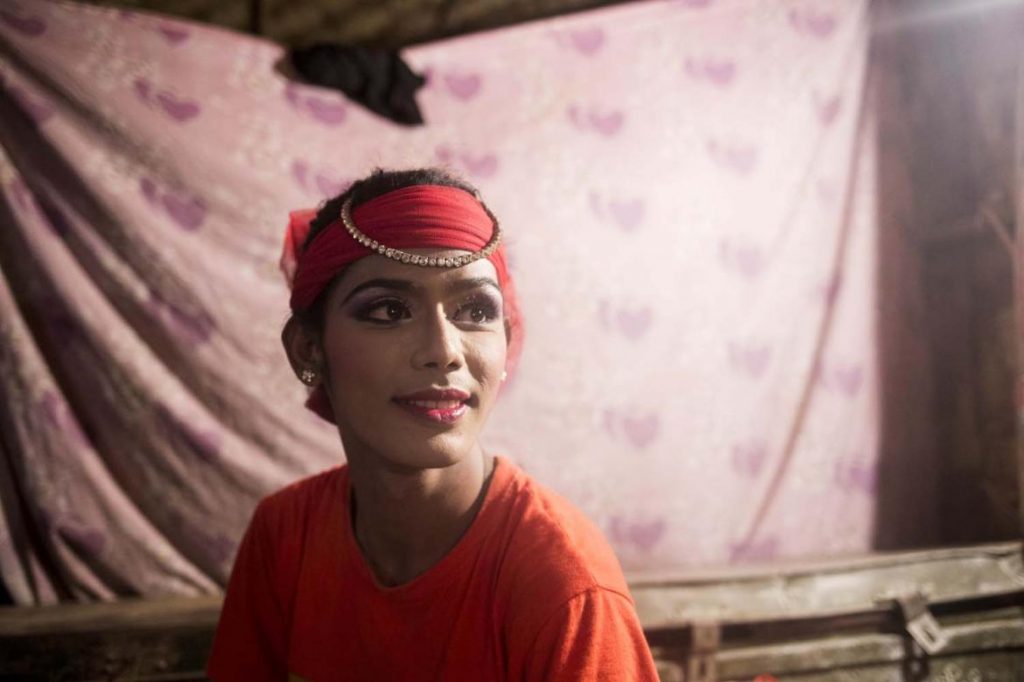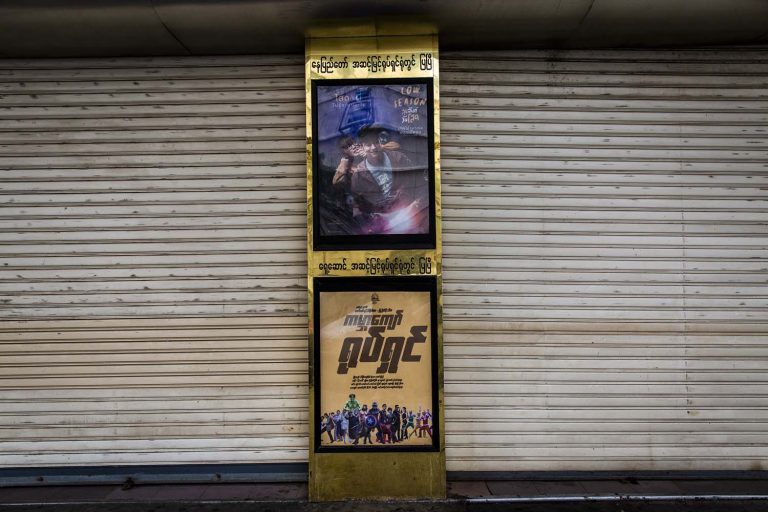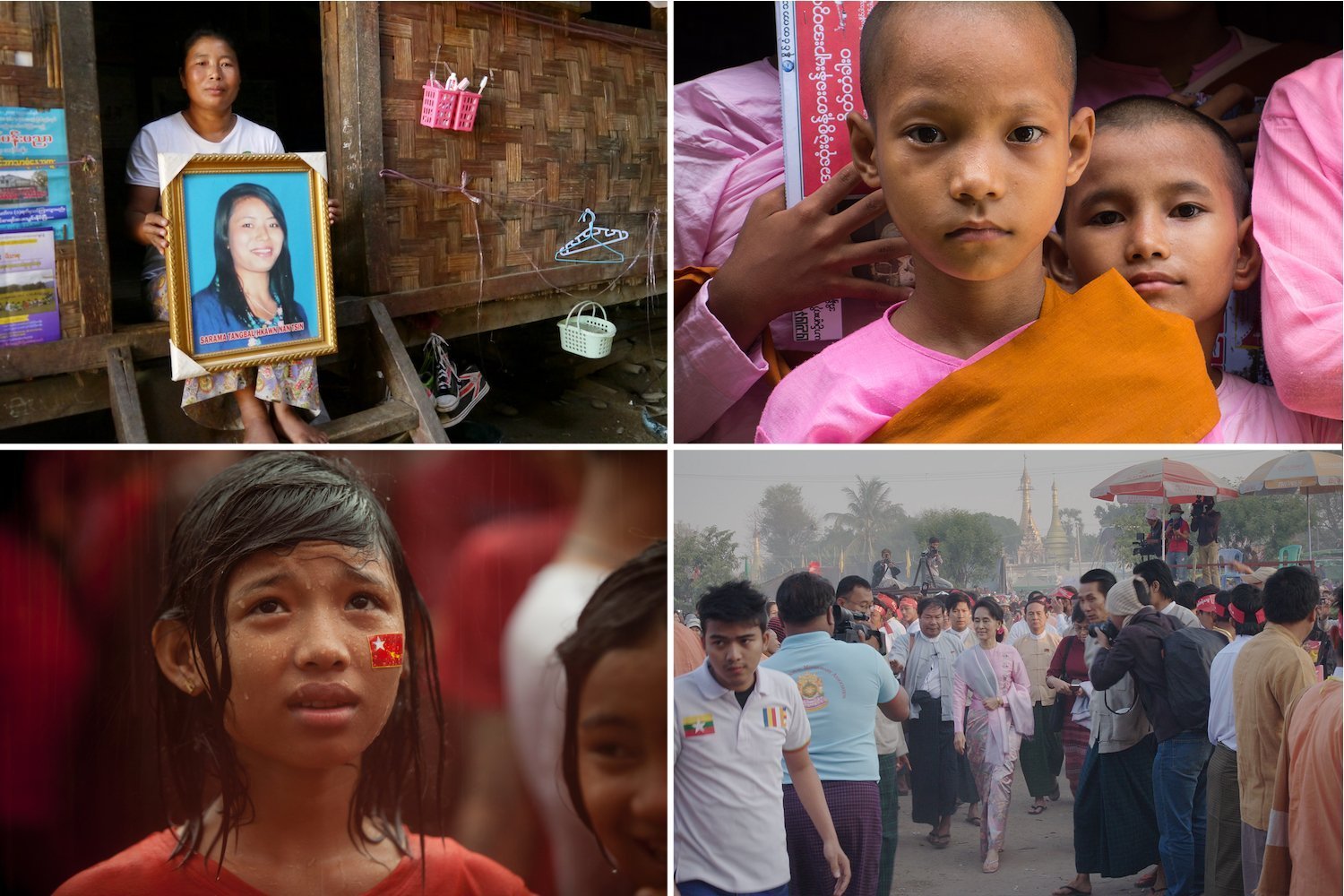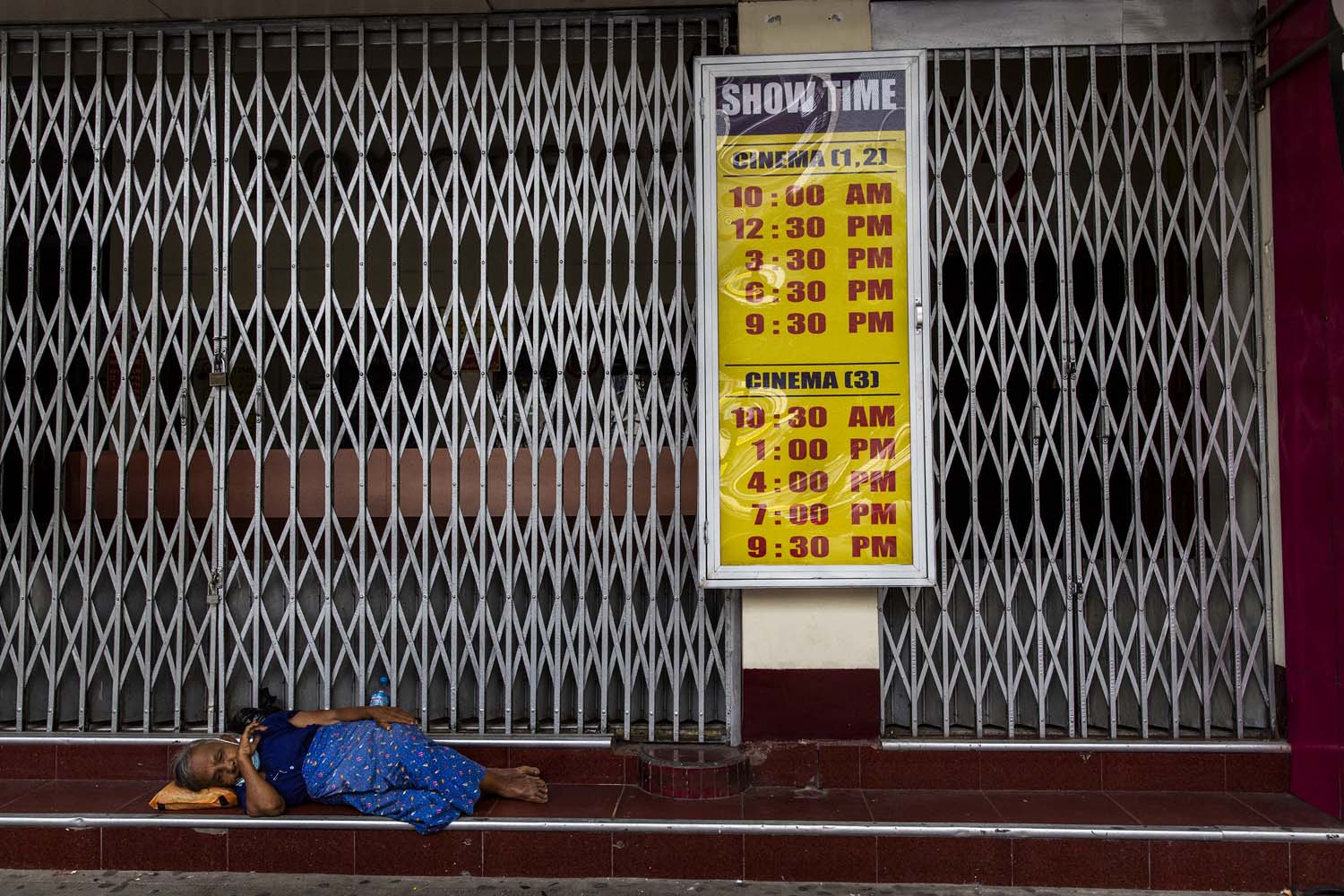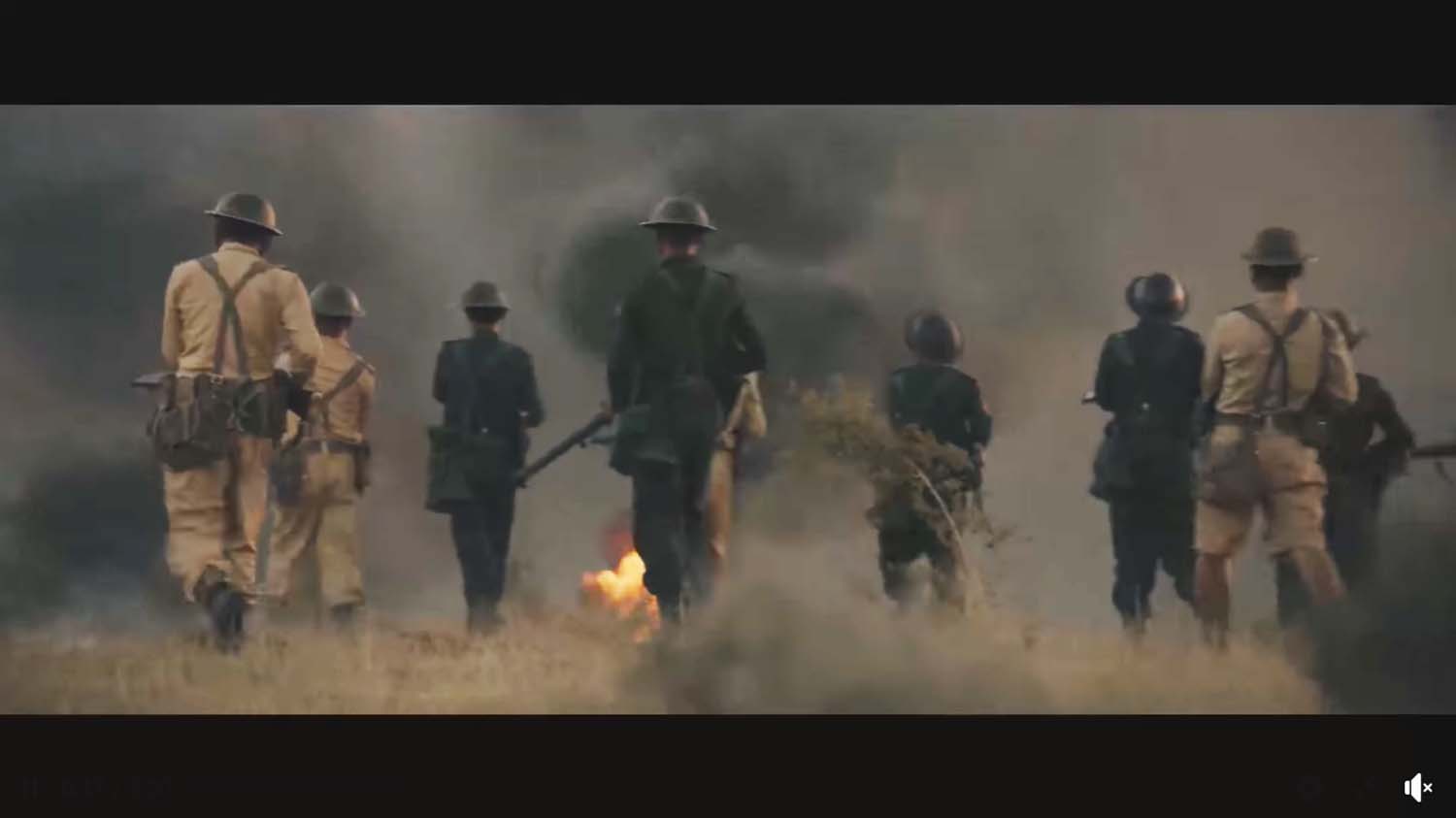Myanmar’s LGBT community is confronting out-dated laws that criminalise their personal lives and hostile attitudes fed by popular culture.
By WIN ZAR NI AUNG and HEIN KO SOE | FRONTIER
KYAW MYO vividly remembers getting the call: a young transgender woman and her male partner had both ingested deadly chemicals as part of a suicide pact. They were in great pain and urged Kyaw Myo, who is also transgender, to come quickly and take them to hospital.
The couple had married in secret a year previously and were living in Taung Tha, about 100 kilometres southwest of Mandalay. But their parents had refused to accept their relationship, and the pain of this ostracism had led to them committing suicide.
The call for help came too late. Although Kyaw Myo rushed to their house and called an ambulance, they both died shortly after arriving at hospital.
“The couple didn’t harm anyone but their parents are traditional – that’s what killed them. As a transgender person, where we live we face discrimination. We can feel it everywhere – it’s not just our families, it’s in every community.”
Support more independent journalism like this. Sign up to be a Frontier member.
The deaths of the young couple did little to change the views of their parents. When a network for men who have sex with men – known as MSM – tried to place the tombs of the deceased couple side by side, both families objected.
Negative stereotyping
Discrimination against members of the LGBT – lesbian, gay, bisexual and transgender – community is deeply ingrained in Myanmar. It is commonly believed that their sexual orientation is the result of moral transgressions in a previous life.
The decision to come out as lesbian, gay, bisexual or transgender can therefore be traumatic, and can sometimes result in rejection by friends and family.
Popular culture contributes to the negative stereotyping of LGBT people in Myanmar, and the portrayal of gay characters in films is particularly harmful. The characters tend to exhibit clownish behaviour, in which their gender nonconformity is made comically grotesque. It is common at the end of the movie for them to change their mind and become straight, reinforcing the notion that being LGBT is ultimately a choice.
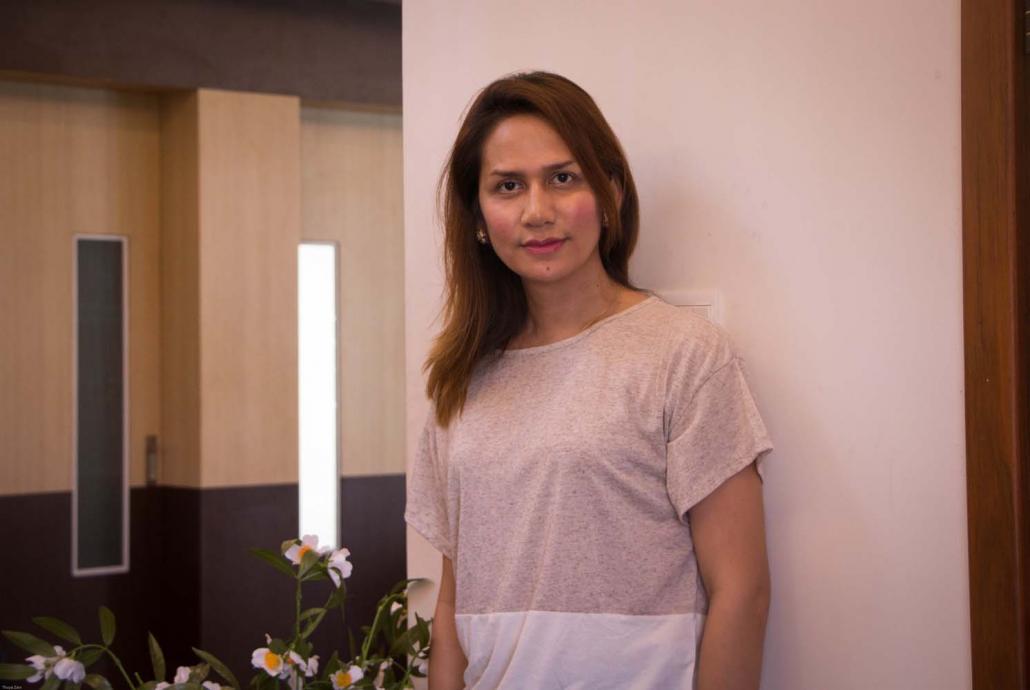
Lin Lin, a make-up artist in the film industry who is transgender, says she is unhappy with the way LGBT people are portrayed in Myanmar movies. (Thuya Zaw | Frontier)
Lin Lin, a make-up artist in the film industry who is also transgender, said she is unhappy with the way LGBT people are portrayed in Myanmar movies, and that this often feeds more sinister stereotypes that go beyond comic relief.
“Filmmakers portray our group as being sexually promiscuous, or grabbing boys and girls. Filmmakers never discuss with me or other members of the LGBT community about LGBT characters in their films,” she said.
Lin Lin said she no longer works on films that portray LGBT people negatively, and is now working with other members of the community to lobby filmmakers to develop LGBT characters that are rounded and accurate, and films that are sympathetic to the challenges that the community face.
The stigma towards LGBT people is compounded by a colonial-era law that criminalises homosexual sex. Section 377 of the Penal Code, often referred to as Myanmar’s sodomy law, prohibits “carnal intercourse against the order of nature with any man, woman or animal”.
Although the law is rarely enforced, Lin Lin said that police commonly use it to harass, intimidate and extort money from gay or MSM people.
“When the police catch a couple in the dark, or having sex, they only [demand] bribes from gay or MSM people. They never charge [heterosexual people] like this, so why do the police do this kind of discrimination?”
Lin Lin added that Myanmar society is still full of misconceptions about gay people, including the belief that all gay men are sexually promiscuous.
Never going back
Myanmar’s National Youth Policy, published at the start of 2018, mandates the ending of discrimination against youth on the basis of sexual orientation or gender identity under section 24(e), and section 26(e) counts LGBT youth among categories of young people deserving of “special consideration” and therefore legal protection. However, there have yet to be any landmark reforms benefitting LGBT people of any age.
Late last year, members of the Myanmar MSM Network met with the Pyithu Hluttaw Health and Sports Promotion Committee. They discussed putting on more events for LGBT people, ending discrimination in health service provision, reducing both the rate of HIV infection and the stigma that surrounds it, tackling misinformation about LGBT people spread by the film industry and ensuring equal rights for LGBT people in law.
“We don’t need more rights [than others]. Our demand is for equal rights without discrimination,” said Ko Nay Lin, chairperson of the MSM Network. The network runs with the support of the Partnership to Inspire, Transform and Connect the HIV Response, known as PITCH, a project funded by the Dutch Ministry of Foreign Affairs.
“We will never go back to having normal sexual orientations but in films there are comic LGBT characters that do go back. […] Also, the health sector still discriminates against us,” Nay Lin said.
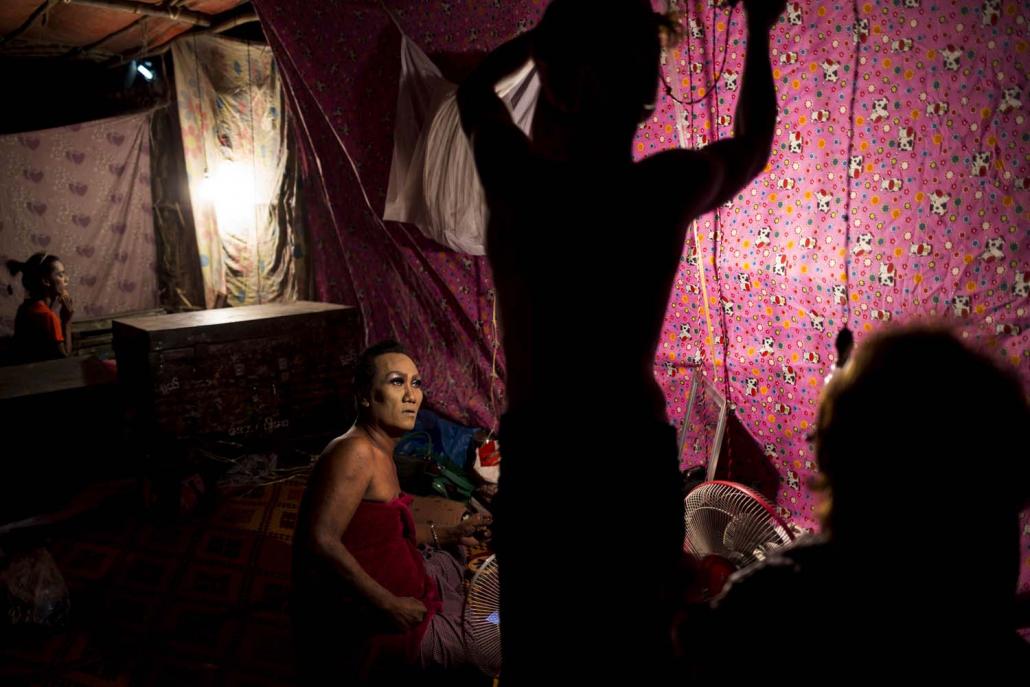
Members of a transgender dance group called Moe Kyo Nyat Nge Lay Myar (Thunder Little Birds), which performs in Yangon’s North Dagon Township. (Ann Wang | Frontier)
Dr Than Win, secretary of the Pyithu Hluttaw committee, said he had met several times with the MSM Network and that he supported their activities.
“But we need more meetings with LGBT people because there are continued issues such as discrimination and misinformation in films.”
Than Win said that another problem was ignorance among many government staff about the challenges faced by the LGBT community.
LGBT rights group Colors Rainbow is promoting greater public awareness of these challenges. It is also advocating for the revision of not only section 377 of the Penal Code but also section 375, which defines rape as a criminal act committed exclusively by a man against a woman, thereby offering limited protection to LGBT people who suffer sexual violence.
Ko Hla Myat, deputy director of Colors Rainbow, said legal reform could take some time and might ultimately depend on shifts in public opinion, which have so far been gradual.
“We are trying to amend the law but don’t know exactly when we will succeed,” he said. “Communities accept and know about LGBT people a little more than before but even in government departments they don’t fully understand our natural existence. So, we are trying to direct more advocacy at these people.”
Signs of change
A lack of representation in government is another obstacle in the struggle for acceptance. However, some LGBT people are considering running as candidates in the 2025 general election, so that they can raise the voices of the community. Among them is Shin Thant, a transgender woman.
“I know that will be very difficult for me because nobody wants a transgender person as their representative, but I will try for our group. People don’t choose to be LGBT or MSM; it is our life. We could ignore it, but we are human beings. So please open your eyes and see who we are,” she said.
Despite the considerable challenges, there are tangible signs of change.
On the consecutive weekends of January 25 to 27 and February 1 to 3, Myanmar’s fifth LGBT festival is taking place in Yangon. Previously known as &PROUD, the event has this year been renamed “Yangon Pride” in order to align more closely with the global Pride movement.
The January 25 to 27 activities took place at Thakin Mya Park in Ahlone Township, and featured free concerts as well as exhibitions, performances and games such as the Drag Olympics. The event also included Myanmar’s first ever LGBT riverboat parade, on the Yangon River on the afternoon of Saturday January 26.
The February 1 to 3 weekend will take place at the French Institute in Sanchaung Township, and will feature a series of film screenings and talks on subjects ranging from transgender health to legal reform.
U Aung Myo Min, executive director of human rights organisation Equality Myanmar and a prominent LGBT activist, said, “It is very good to see the festival become increasingly popular among LGBT people, as well as the general public.
“We used to have that kind of gathering in private, talking secretly among our inner circle. But now it’s reaching into public areas,” he said. “Because we need to be proud.”


